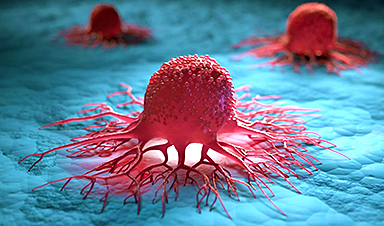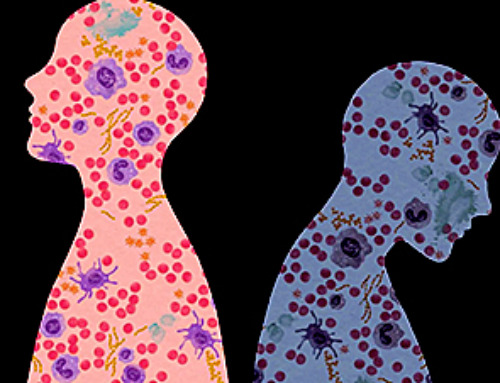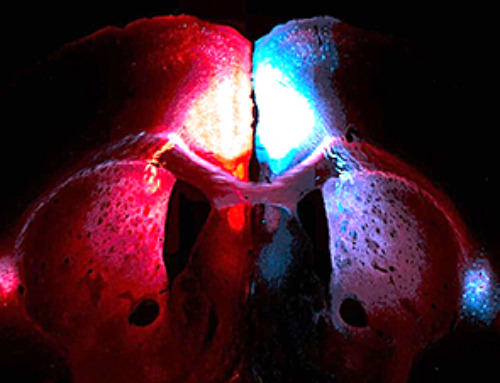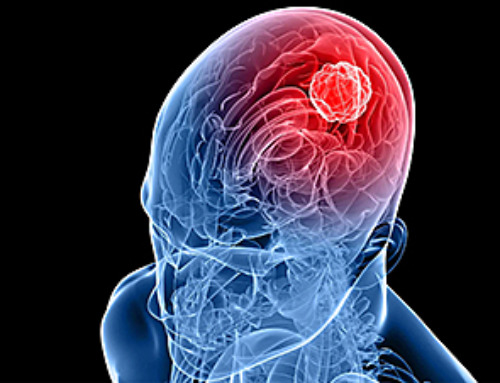A new study from Lund University in Sweden suggests that tattoos could be a risk factor for cancer in the lymphatic system, or lymphoma. Now, the researchers underline the need for more research on the topic.
Our understanding of the long-term health impacts of tattoos is currently limited, with minimal research in this field. A research team at Lund University has now examined the potential link between tattoos and lymphoma.
“We have identified people diagnosed with lymphoma via population registers. These individuals were then matched with a control group of the same sex and age, but without lymphoma. The study participants answered a questionnaire about lifestyle factors to determine whether they were tattooed or not,” says Christel Nielsen, the researcher at Lund University who led the study.
In total, the entire study included 11,905 people. Of these, 2,938 people had lymphoma when they were between 20 and 60 years old. Among them, 1,398 people answered the questionnaire, while the number of participants in the control group was 4,193. In the group with lymphoma, 21 percent were tattooed (289 individuals), while 18 percent were tattooed in the control group without a lymphoma diagnosis (735 individuals).
Findings on Tattoo Risk and Lymphoma
“After taking into account other relevant factors, such as smoking and age, we found that the risk of developing lymphoma was 21 percent higher among those who were tattooed. It is important to remember that lymphoma is a rare disease and that our results apply at the group level. The results now need to be verified and investigated further in other studies and such research is ongoing,” says Christel Nielsen.
A hypothesis that Christel Nielsen’s research group had before the study was that the size of the tattoo would affect the lymphoma risk. They thought that a full-body tattoo might be associated with a greater risk of cancer compared to a small butterfly on the shoulder, for example. Unexpectedly, the area of the tattooed body surface turned out not to matter.
“We do not yet know why this was the case. One can only speculate that a tattoo, regardless of size, triggers a low-grade inflammation in the body, which in turn can trigger cancer. The picture is thus more complex than we initially thought.”
Dr Nielsen comments on the new study. Credit: Lund University
Most people get their first tattoo at a young age, which means that you are exposed to tattoo ink for a large part of your life. Even so, research has only scratched the surface of the long-term health effects of tattoos.
“We already know that when the tattoo ink is injected into the skin, the body interprets this as something foreign that should not be there, and the immune system is activated. A large part of the ink is transported away from the skin, to the lymph nodes where it is deposited”, says Christel Nielsen.
The research group will now proceed with studies of whether there is any association between tattoos and other types of cancer. They also want to do further research on other inflammatory diseases to see if there is a link to tattoos.
“People will likely want to continue to express their identity through tattoos, and therefore it is very important that we as a society can make sure that it is safe. For the individual, it is good to know that tattoos can affect your health, and that you should turn to your health care provider if you experience symptoms that you believe could be related to your tattoo,” concludes Christel Nielsen.
Reference: “Tattoos as a risk factor for malignant lymphoma: a population-based case–control study” by Christel Nielsen, Mats Jerkeman and Anna Saxne Jöud, 21 May 2024, eClinicalMedicine.
DOI: 10.1016/j.eclinm.2024.102649
News
This Is Why the Same Virus Hits People So Differently
Scientists have mapped how genetics and life experiences leave lasting epigenetic marks on immune cells. The discovery helps explain why people respond so differently to the same infections and could lead to more personalized [...]
Rejuvenating neurons restores learning and memory in mice
EPFL scientists report that briefly switching on three “reprogramming” genes in a small set of memory-trace neurons restored memory in aged mice and in mouse models of Alzheimer’s disease to level of healthy young [...]
New book from Nanoappsmedical Inc. – Global Health Care Equivalency
A new book by Frank Boehm, NanoappsMedical Inc. Founder. This groundbreaking volume explores the vision of a Global Health Care Equivalency (GHCE) system powered by artificial intelligence and quantum computing technologies, operating on secure [...]
New Molecule Blocks Deadliest Brain Cancer at Its Genetic Root
Researchers have identified a molecule that disrupts a critical gene in glioblastoma. Scientists at the UVA Comprehensive Cancer Center say they have found a small molecule that can shut down a gene tied to glioblastoma, a [...]
Scientists Finally Solve a 30-Year-Old Cancer Mystery Hidden in Rye Pollen
Nearly 30 years after rye pollen molecules were shown to slow tumor growth in animals, scientists have finally determined their exact three-dimensional structures. Nearly 30 years ago, researchers noticed something surprising in rye pollen: [...]
NanoMedical Brain/Cloud Interface – Explorations and Implications. A new book from Frank Boehm
New book from Frank Boehm, NanoappsMedical Inc Founder: This book explores the future hypothetical possibility that the cerebral cortex of the human brain might be seamlessly, safely, and securely connected with the Cloud via [...]
How lipid nanoparticles carrying vaccines release their cargo
A study from FAU has shown that lipid nanoparticles restructure their membrane significantly after being absorbed into a cell and ending up in an acidic environment. Vaccines and other medicines are often packed in [...]
New book from NanoappsMedical Inc – Molecular Manufacturing: The Future of Nanomedicine
This book explores the revolutionary potential of atomically precise manufacturing technologies to transform global healthcare, as well as practically every other sector across society. This forward-thinking volume examines how envisaged Factory@Home systems might enable the cost-effective [...]
A Virus Designed in the Lab Could Help Defeat Antibiotic Resistance
Scientists can now design bacteria-killing viruses from DNA, opening a faster path to fighting superbugs. Bacteriophages have been used as treatments for bacterial infections for more than a century. Interest in these viruses is rising [...]
Sleep Deprivation Triggers a Strange Brain Cleanup
When you don’t sleep enough, your brain may clean itself at the exact moment you need it to think. Most people recognize the sensation. After a night of inadequate sleep, staying focused becomes harder [...]
Lab-grown corticospinal neurons offer new models for ALS and spinal injuries
Researchers have developed a way to grow a highly specialized subset of brain nerve cells that are involved in motor neuron disease and damaged in spinal injuries. Their study, published today in eLife as the final [...]
Urgent warning over deadly ‘brain swelling’ virus amid fears it could spread globally
Airports across Asia have been put on high alert after India confirmed two cases of the deadly Nipah virus in the state of West Bengal over the past month. Thailand, Nepal and Vietnam are among the [...]
This Vaccine Stops Bird Flu Before It Reaches the Lungs
A new nasal spray vaccine could stop bird flu at the door — blocking infection, reducing spread, and helping head off the next pandemic. Since first appearing in the United States in 2014, H5N1 [...]
These two viruses may become the next public health threats, scientists say
Two emerging pathogens with animal origins—influenza D virus and canine coronavirus—have so far been quietly flying under the radar, but researchers warn conditions are ripe for the viruses to spread more widely among humans. [...]
COVID-19 viral fragments shown to target and kill specific immune cells
COVID-19 viral fragments shown to target and kill specific immune cells in UCLA-led study Clues about extreme cases and omicron’s effects come from a cross-disciplinary international research team New research shows that after the [...]
Smaller Than a Grain of Salt: Engineers Create the World’s Tiniest Wireless Brain Implant
A salt-grain-sized neural implant can record and transmit brain activity wirelessly for extended periods. Researchers at Cornell University, working with collaborators, have created an extremely small neural implant that can sit on a grain of [...]





















